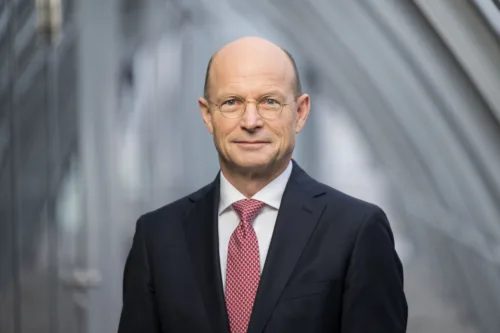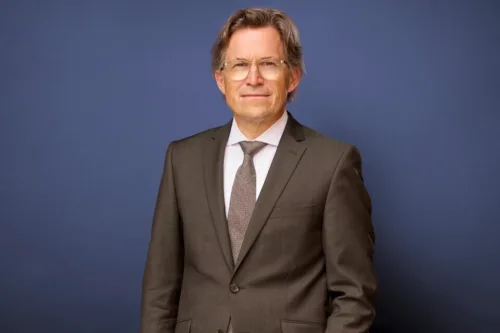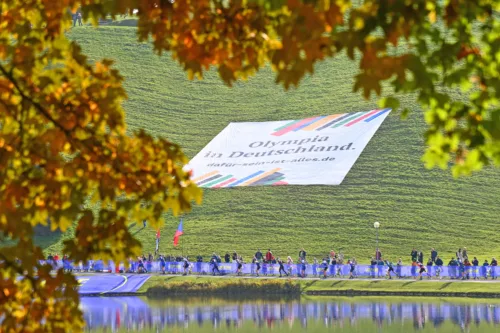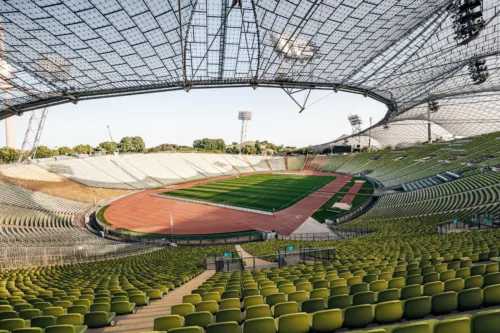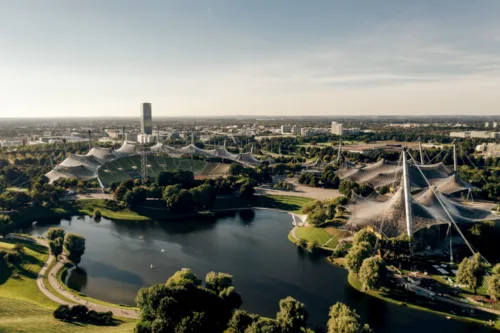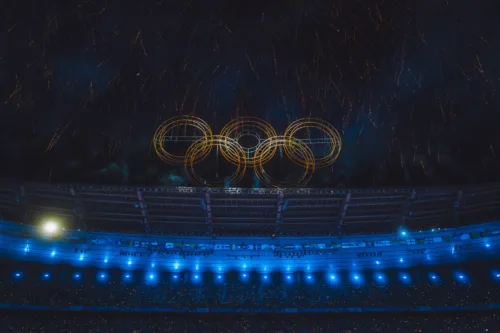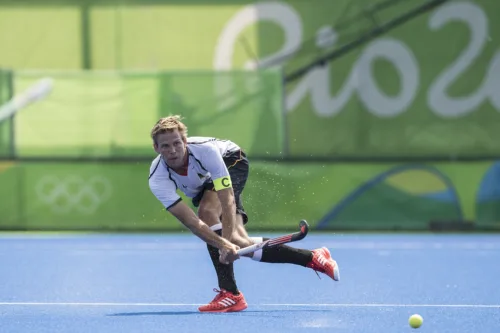What Remains from Paris 2024?
Five Impacts Beyond Sports
A year after the Olympic Games, it is clear: Paris 2024 was more than just a major sporting event. From sustainability and gender equality to the promotion of grassroots sports, these five developments continue to have an impact. 1

DOSB Editorial, 07/26/2025. Paris 2024 was a turning point made possible by profound reforms initiated by the International Olympic Committee (IOC) under President Thomas Bach years earlier. With the Olympic Agenda 2020, The New Norm, and Olympic Agenda 2020+5, the hosting of the Olympic and Paralympic Games was fundamentally reimagined: more transparent, sustainable, and socially inclusive. The result: a major sporting event that integrated into society rather than distancing itself from it.
Reach and Participation: Games for Everyone
The Games in Paris were not an elite event but a celebration for millions: Over 12 million tickets were sold, 8 million people visited public fan zones, 45,000 volunteers were on-site, and 5 billion viewers worldwide followed the events via TV and digital channels. Thanks to innovative formats and urban venues, the Games were more modern, youthful, and inclusive. They were closer to the people and more visible than ever.
Many athletes became role models, directly impacting organized sports in the country. After the Games, membership numbers in French sports clubs increased significantly. Table tennis clubs reported a 20% increase, fencing 25%, and triathlon 32%. Swimming, handball, rugby, volleyball, and para-sports also saw growth, spurred by strong performances and medals from local athletes like swimmer Léon Marchand and table tennis player Félix Lebrun.
Sustainability: From Symbolism to Substance
One of the central goals and promises of "Games without Gigantism" was fulfilled in Paris. About 95% of the venues were existing or temporary facilities. Only three sports venues were newly built, focusing on low-carbon materials and ecological planning and architecture. The environmental record underscores this approach: 54.6% less CO₂ emissions compared to London 2012 and Rio 2016, according to the sustainability and legacy report of Paris 2024 released earlier this year.
Joint measures with Olympic partner Coca-Cola halved plastic consumption compared to previous Games. Initiatives like refillable water stations, drinking fountains, and biodegradable cutlery contributed significantly.
Economic and Infrastructural Boost with Long-term Impact
The Games also acted as an economic stimulus and value creation engine. Around 181,000 new jobs were created in construction, organization, and tourism. Long-term, an economic impact of 6.9 to 11.1 billion euros is expected for the Greater Paris area (depending on the scenario over 17 years).
The Olympic Village was transformed into an inclusive residential area for 6,000 residents, set to open in August 2025. Over 90% of the equipment was reused or returned to partners after the Games, elevating the circular economy to a new level. A total of 180 kilometers of new bike paths were created, promoting sustainable mobility in the city beyond just connecting competition venues.
Gender Equality Realized for the First Time
For the first time in the history of the Games, complete gender parity (50:50) was achieved among participating athletes. 96% of participating nations had male and female flag bearers at the opening ceremony.
TV airtime was equally distributed, and gender equality was a lived practice within the organizing committee. A milestone and model for associations, media, and organizers worldwide.
Grassroots Sports and Education: Olympics in Everyday Life
Another central goal was to bring sports into the daily lives of the population, especially children and youth. France implemented extensive measures for this:
- 30 minutes of exercise daily in 36,500 primary schools
- 36,800 sports kits for schools
- 36,000 children received free swimming lessons
- 5 million young participants in nationwide Olympic and Paralympic weeks
- Introduction of the "Terre des Jeux" label for sports-friendly institutions
- Implementation of 2,500 cultural projects as part of the "Cultural Olympiad."
Conclusion: The Olympics Can Do More, If You Want Them To
The Paris 2024 Games have impressively demonstrated that the Olympic and Paralympic Games can be more than just a major sporting event. They can shape society, set new standards, and initiate long-term developments when planned sustainably, organized transparently, and deeply rooted in society.
The DOSB aims to build on this with its planned bid for the Olympic and Paralympic Games. The Olympics in Germany should become a future project for the entire country, a catalyst for more movement, cohesion, and sustainable infrastructure.
The momentum is there. With the tailwind from Paris, political support, and willingness from several cities and regions, the foundation is laid to rethink the Olympic Games in Germany for everyone who lives sports and wants to move society. Berlin, Hamburg, Munich, and Rhein-Ruhr have submitted their concepts, which will be reviewed and further developed by December 2025. After possible public votes by the first half of 2026, an extraordinary DOSB General Assembly will vote on the German candidate.

